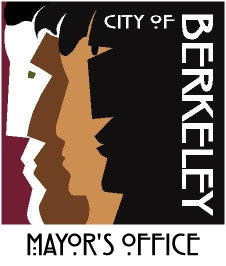Berkeley City Council Approves Balanced Budget, Focusing on Post-COVID-19 Recovery
June 30, 2021
BERKELEY – Last night, after the most extensive and transparent budget process in the city’s history, the Berkeley City Council approved a $673.6 million budget for Fiscal Year 2022 (July 1, 2021 - June 30, 2022).
“Berkeley’s budget is a reflection of our values and a sign of our city’s resiliency as we begin our COVID-19 recovery,” said Berkeley Mayor Jesse Arreguin. “City spending will reflect the needs and requests of our community, including reimagining public safety and community policing, traffic safety, and economic recovery.”
The City of Berkeley is receiving $66.6 million from the American Rescue Plan, which will be used to respond to the ongoing COVID-19 emergency and address its economic effects, including assistance to small businesses, households, nonprofits and hard hit industries. The City experienced significant revenue losses that have resulted in deficits that are likely to persist for many years. Last year, a balanced budget was approved despite a $40 million deficit, which was resolved primarily through project deferrals and tapping into reserve funds. Similar actions are needed given this year’s $22.7 million deficit.
Public safety also ranks highly in the budget as California faces wildfire conditions that are more dire than last year’s unprecedented, record-shattering season. Approximately $12.5 million from Measure FF - a parcel tax approved by Berkeley voters in 2020 for fire, emergency services, and wildfire prevention - will be spent on vegetation management, emergency response improvements and hiring additional firefighters.
This year Berkeley became a nationwide leader in reimagining public safety. Several reforms are now being implemented including the Specialized Care Unit, which would re-assign non-criminal police service calls to trained crisis-response field workers who would respond to such calls. Other proposals, such as re-assigning basic traffic enforcement to a newly created Department of Transportation, are pending changes in state law. By re-assigning such services Berkeley will free up resources for other community services and enable police to focus on serious crimes and prevention.
Other areas of note include expanding homeless services thanks to support from Berkeley voters in approving Measures U1 (2016) and O & P (2018). This includes expanding outreach, shelter capacity, and the supply of permanent supportive housing. Sustainable infrastructure is also expanding, with an expanded residential EV charging program, advancing electrification work to switch from natural gas to clean electricity, and planning to study the impacts of climate change. Improvements to bike and pedestrian infrastructure are also included to promote safe and environmentally friendly transportation options.
Over the last two months, preparations and community engagement around the budget included four City Council meetings, ten Budget Committee meetings, and a budget town hall, all of which enabled extensive public testimony from hundreds of Berkeley residents and workers. While the approved budget typically covers two years, due to the economic uncertainties caused by COVID-19, the approved budget covers one year. Amendments to the budget will be made as needed in November/December 2021.
###
